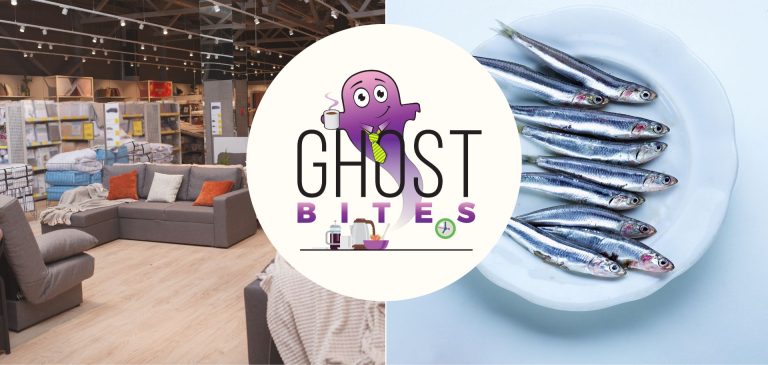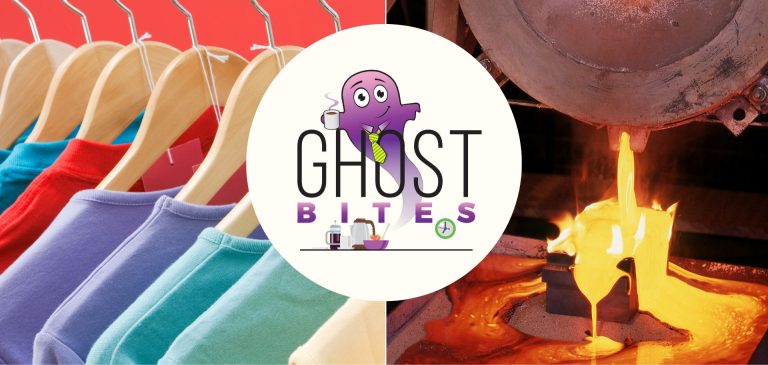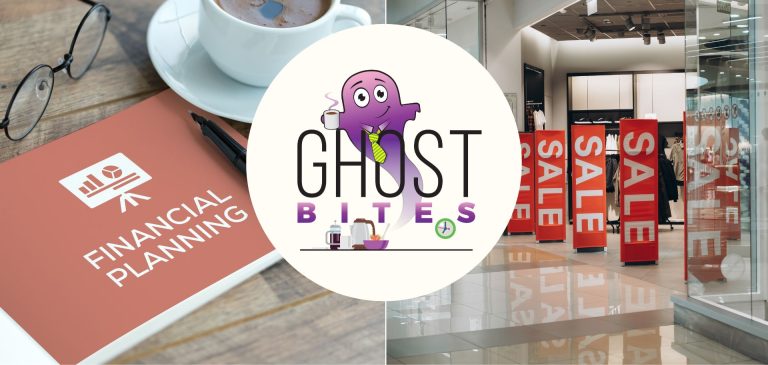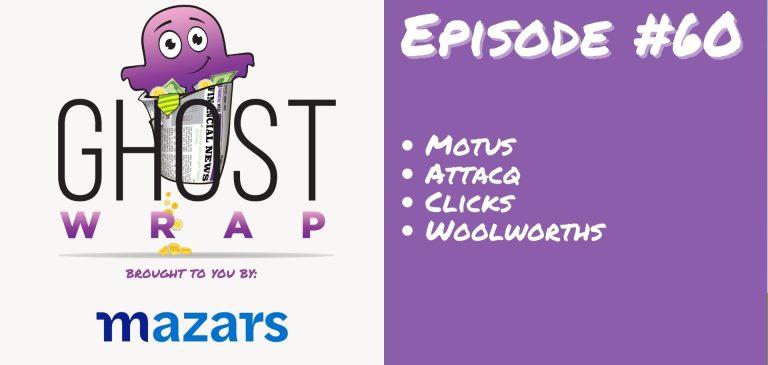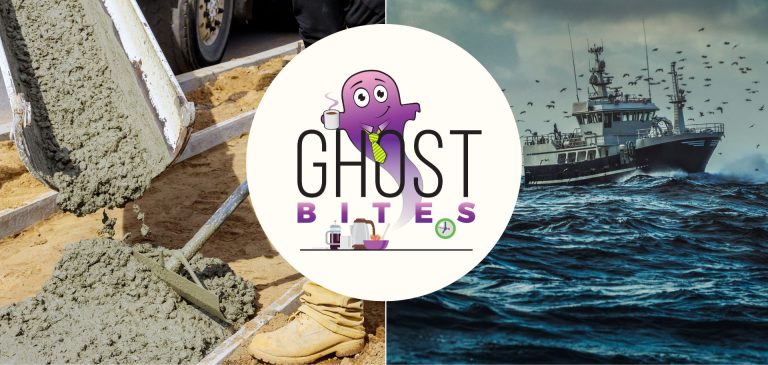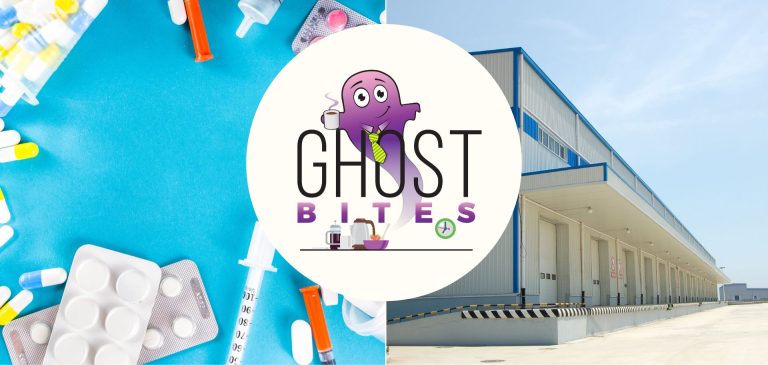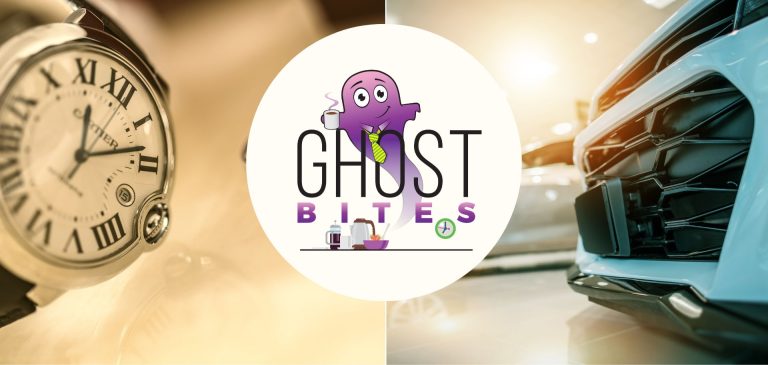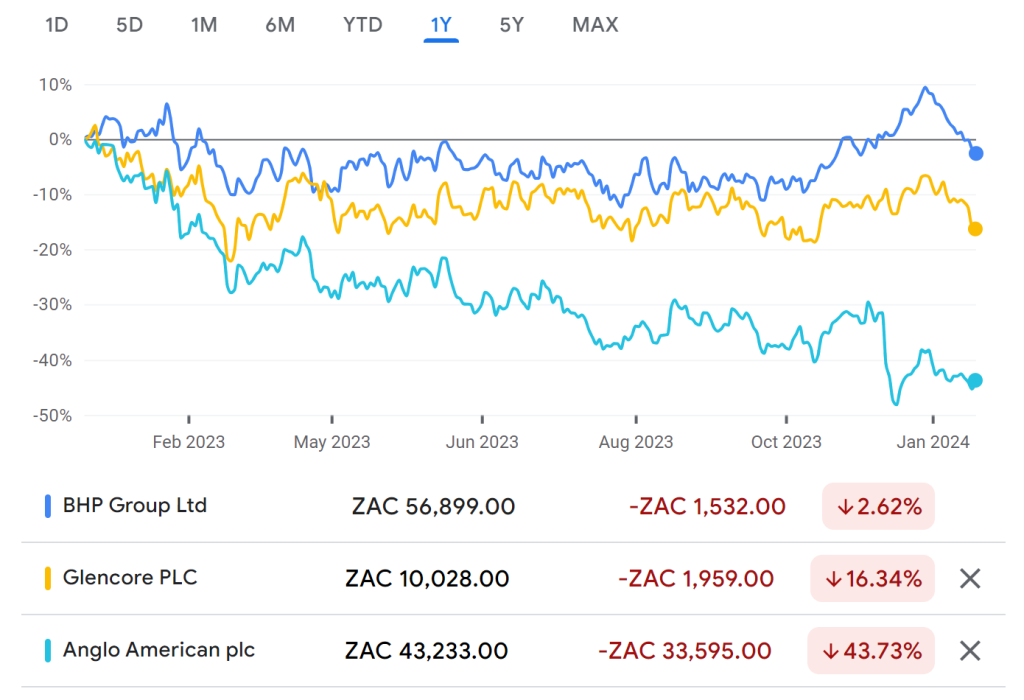Get the latest recap of JSE news in the Ghost Wrap podcast, brought to you by Mazars:
AVI proves that we keep eating our stress away (JSE: AVI)
The biscuit and snacking business has improved its margins
When it comes to consumer goods, my theory is that the most defensive branded products are the ones that we turn to in a time of need. In other words: the naughty treats. When it’s time to throw calories at our problems, we want the branded stuff with a taste we trust. Private label will do for day-to-day things, but not for that skelm snack just before bed.
In AVI’s trading update for the six months to 31 December 2023, Snackworks reported revenue growth of 9.8%. That’s not the most impressive growth in the group, with that honour going to Entyce Beverages with growth of 16%. The difference is that Entyce couldn’t fully recover cost pressures through pricing, as consumers are price sensitive on drinks. Instead, that business managed to protect margins by increasing volumes and achieving manufacturing efficiencies. Snackworks, in contrast, was able to recover input cost pressures thanks to consumers being less price sensitive, improving margins in the process.
Within the group revenue growth performance of 7.1%, the important laggard was I&J. Fish sales volumes fell 17.1% due to poor catch rates, aggressive competition and inefficiencies at Cape Town’s port. The taxi strike also didn’t help. Combined with the costs of a new B-BBEE structure, I&J’s operating profit is “materially lower” year-on-year.
Thankfully, the rest of the group pulled through and delivered HEPS growth of between 16% and 18%. That’s a strong performance, which is why the share price was trading 6% higher in late afternoon trade.
Bowler Metcalf: hold on to your hats (JSE: BCF)
The packaging and plastics company has delivered a big jump in earnings
Bowler Metcalf has a black hat as its corporate logo and possibly the worst website on the JSE. The share price has been volatile and isn’t the most liquid thing around either, but there’s little doubt that the market will appreciate the latest trading statement.
Thanks to higher sales in the packaging segment and resultant benefits of economies of scale, HEPS for the six months to 31 December 2023 is expected to be between 68.8 cents and 73.3 cents. That’s an increase of between 42.1% and 61.9%!
There’s very little growth happening at Cashbuild (JSE: CSB)
But at least the second quarter was better than the first quarter
Cashbuild released an operational update dealing with the second quarter of the year, which ended on 24 December 2023. This also gives us sales data for the first half of the year.
The second quarter was certainly a lot better than the first quarter, coming in at 5% growth in revenue. Like-for-like revenue growth was 3% and new stores contributed 2%. When combined with the first quarter to give the half-year result, we find growth of just 2%.
Selling price inflation was 3.2% as at the end of December. Transaction volumes were down 1% in existing stores over the period.
P&L Hardware is still going backwards, with a drop in revenue of 5% in the second quarter.
A strong retail performance at Clicks (JSE: CLS)
A drop in wholesale turnover blunted the overall turnover growth – but still a good set of numbers
The health and beauty market in South Africa seems to never stop growing. Attacq gave us a pretty good clue in the update on Monday and Clicks confirmed it at a much more macro level on Tuesday by releasing a trading update for the 20 weeks to 14 January 2024.
Retail turnover is up 11.8%, with Clicks having achieved its highest ever daily sales on Friday 22 December. People were clearly getting those headache pills ready in anticipation of a big Christmas weekend! Selling price inflation was 7.5% and sales in comparable stores increased by 8.4%, so Clicks achieved volume growth.
Clicks achieved market share gains across all core product categories in the first quarter of the financial year, which is genuinely impressive.
Moving on from Clicks retail, recently acquired chain Sorbet grew franchise and corporate sales by 12.3%. Franchise sales aren’t reported as part of Clicks’ sales, but the company earns royalties etc. on them.
The wholesale business didn’t do so well, with UPD’s total managed turnover declining by 6.3%. Wholesale turnover was down 0.8% due to a systems transition at UPD’s main distribution centre. Many a consumer goods business has been impacted by changes in systems and Clicks is no exception. As systems stabilised, wholesale turnover improved significantly, coming in at 6.9% for the six weeks to 14 January. This was hopefully just a bump in the road. It’s also worth noting that UPD has been strategically letting go of lower margin clients.
Unsurprisingly, the market gave this announcement a positive reaction.
Record quarterly chrome production at Jubilee (JSE: JBL)
The group is on track to deliver production guidance for FY24
Jubilee Metals released a production update for the second quarter of the 2024 financial year. This quarter covers the three months to the end of December. The good news is that FY24 production guidance has been affirmed thanks to a strong quarter.
Chrome production increased by 13.2% quarter-on-quarter, setting a new quarterly record in the process. PGM production was maintained at very similar levels to the first quarter, with no third-party production in the period. Copper production at Roan fell vs. the first quarter but the upgrade project is going to drive a strong second half of the year. It’s a pity that a delay at the Roan project has been experienced based on difficulties in sourcing certain electrical components.
Karooooo is still growing, but at a slower rate (JSE: KRO)
A deceleration in growth isn’t what the market likes seeing
Karoooooo is the owner of Cartrack (and a couple of other businesses – but that’s the main one). Cartrack is all about signing up new subscribers and increasing the base of recurring revenue. Investors have high expectations for growth, with the share price having been largely range-bound since mid-2022 as the company tries to grow into its valuation.
The good news is that the business is still growing, with Cartrack subscribers up by 14% year-on-year in the third quarter. The bad news is that the rate of growth has slower, with fewer net new subscribers in this quarter than a year ago.
Total revenue is up 16% as reported or 14% on a constant currency basis. Subscription revenue increased by 17% as reported and 14% on a constant currency basis, so there’s your proof that most of the revenue is recurring in nature. Importantly, Cartrack is growing in every region in which it operates.
Cash generated from operations is an important measure for the group and it increased by 55%.
The sooner the pain in Carzuka ends, the better. The failed attempt at entering the used car market lost R28 million this quarter. It lost R15 million in the comparable quarter. They are winding it down, which is why cost of sales was larger than revenue. Stock needs to be cleared.
Karooooo Logistics is telling a far better story, with adjusted EBITDA jumping from R2.6 million to R7.9 million. It’s still small (and particularly tiny vs. adjusted EBITDA of R447 million at Cartrack), but isn’t a drag on group earnings.
Woolworths is treading water (JSE: WHL)
The recovery has suffered a significant wobbly
After a few periods in which the apparel side of the business at Woolworths was starting to tell a better story than Woolworths Food, the organic yoghurts fought back and delivered the best numbers in the group. Sadly, this is less to do with brilliance at Woolworths Food and more to do with a poor result in Fashion Beauty and Home.
The group numbers need to exclude David Jones to be comparable, as that disaster is finally out of the group in this period but was still there in the base. With that adjustment in place, sales increased by 5.4% as reported or 4.4% in constant currency terms for the 26 weeks to 24 December 2023. Woolworths is quick to point out that the base period was strong and that makes the comparison tougher, but the reality is that this wasn’t a good performance.
If there is a silver lining, it’s that sales growth accelerated to 7.2% in the last six weeks of the period. Those Woolworths mince pies are working hard here.
Speaking of the Christmas goodies, Woolworths Food grew turnover by 8.4% overall and 7.2% on a comparable store basis. Underlying product inflation was 9.1%, which means volumes growth was negative i.e. consumers pulled back. This is despite price increases at Woolworths being below headline food inflation, which remains one of my key concerns about the group. The pricing power enjoyed a few years ago doesn’t seem to be present anymore.
I have an overall fear that the South African upper middle class is simply becoming too poor for the Woolworths Food model to show strong growth. Just look around you at the relative explosion of Chinese cars on the road vs. the German models that were everywhere 10 or 15 years ago. The overall level of wealth is dropping.
At least we are still happy to spend over Dezemba, with sales in Woolworths Food up 8.6% in the last six weeks of the period at a time when inflation was up 7.9%. This means positive volume growth!
Space grew 3.3% over the period, so Woolworths is still investing. Online sales were up 46.6%, contributing 5.1% of South African sales.
Moving on to Fashion Beauty and Home, sales for the 26-week period were hit by poor availability of stock. The summer range was delayed at the ports. Turnover grew by a paltry 2.2% and comparable store sales were up just 1.5%. That’s a pretty horrible outcome when price movement was 11.4%, as it means that volumes were sharply negative. The last six weeks of the period weren’t much better, up 3.8%. Trading space was up 0.3% and online sales grew 26.9%, contributing 5.4% of South African sales.
This means that we are nearly at the point where online sales penetration in Woolworths Food will exceed penetration in Fashion Beauty and Home. I firmly believe that Checkers can be thanked for that, with other retailers benefitting from market acceptance.
Woolworths Financial Services grew the book by 4.9%. The annualised impairment rate increased from 5.5% to 6.3%, reflecting the strain on consumers. Importantly, it’s lower than at the end of the previous year.
Moving across the pond, Country Road Group saw sales fall by 5.0% overall and 9.5% in comparable stores. The company had a very strong base to contend with, as Australians in particular emerged from post-Covid lockdowns to dodge spiders and snakes on their way to the shops. Sales growth in the last six weeks moved slightly positive, up 1.3%.
Despite the performance in Australia, trading space increased by 6.6% in this period. Woolworths is clearly looking through the cycle here and investing. It’s also worth noting that online sales increased marginally to 26.8% of total sales, so that gives you an idea of how underdeveloped online shopping still is in South Africa.
With all said and done, HEPS from continuing operations will be down by between 5% and 10%. Including David Jones in the base leads to a HEPS drop of 25% to 35%, but that’s not a fair comparison.
Little Bites:
- Director dealings:
- The CEO of RH Bophelo (JSE: RHB) bought shares worth R790k.
- Acting through Protea Asset Management, Finbond (JSE: FGL) director Sean Riskowitz has bought shares worth R68k.
- Reinet (JSE: RNI) confirmed that its net asset value (NAV) per share increased by 2.1% between September 2023 and December 2023. The company has achieved a compound annual growth rate (including dividends) of 8.5% since March 2009, measured in euros.
- Coronation Fund Managers (JSE: CML) announced its total assets under management as at 31 December 2023. The number came in at R629 billion. They never bother to include the comparative number, forcing me to go digging for old SENS announcements. The number as at 31 December 2022 was R602 billion. This means they grew assets under management by 4.5% in the past 12 months.
- The CEO of Eastern Platinum (JSE: EPS) wrote a letter to shareholders in which he reminded them of the significant expected change in production mix from 2023 to 2026. Chrome production made up most of the mix in 2023, yet PGMs will be 80% of 2024 revenue and the split will then move to 65% – 35% in favour of PGMs in 2025 – 2026. Although PGM prices are under a lot of pressure currently, the hope is obviously that they improve significantly by the time Eastern Platinum is producing a material amount of PGMs. It also helps matters that the whistleblower allegations of related party transactions were found to be unsubstantiated. For the work required to get the PGM operations going, the company has funding from the rights offer completed in May 2023 and an Investec pipeline finance facility.
- Orion Minerals (JSE: ORN) has acquired important surface rights at its New Okiep Mining Project, clearing the way for more drilling. The company says that this clears up any conflicting land use interests, which previously prevented Orion from accessing the surface area to conduct validation work.
- In its share buyback programme that started in November 2023, AB InBev (JSE: ANH) has repurchased 0.51% of total shares outstanding. This is an investment of $647 million in its own shares.
- Since the general authority was given in July 2023, Santova (JSE: SNV) has repurchased 3.1% of its shares for R30.8 million. The average price paid was around R7.50 per share, which is slightly below the current market price.



